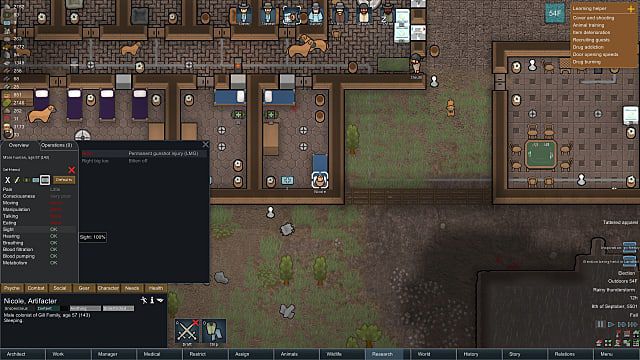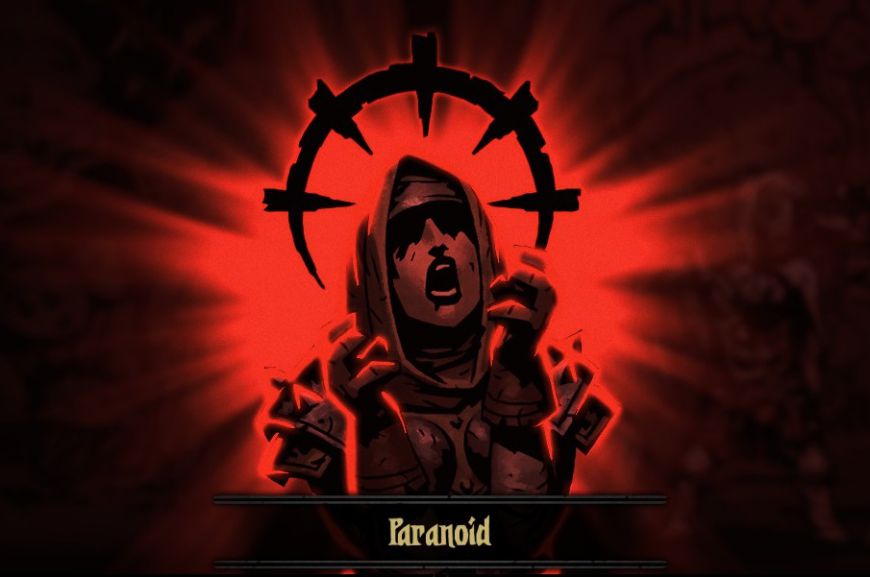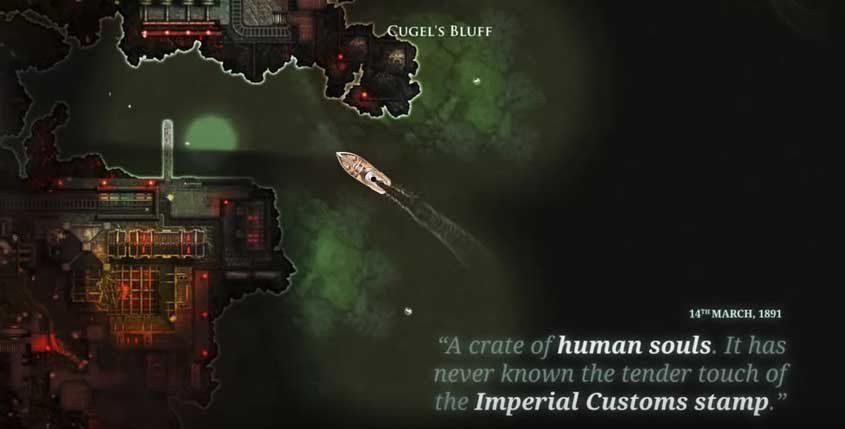Where procedural narrative needs to go next
- Edwin McRae
Where procedural narrative needs to go next
I played Rimworld because it was touted as a wonder of procedural narrative, one of the few games to take the approach seriously and do it well. I returned from that raw frontier with some very mixed feelings.
Story Engine or Plot Engine
Rimworld is remarkably good at generating plot on the fly. You have your three little space crash survivors who you set to work, salvaging supplies, building themselves a home, planting crops and so on. Basic town builder stuff.

But Rimworld goes much deeper than your average town builder. Each survivor has a set of basic Needs, like the need for an aesthetically pleasing home, the need to feel like a civilized human being who eats at a table. The need for recreation, the need for comfortable clothing, and so on.
If you don’t manage to supply those needs within your settlement, it can affect physical and mental health. For instance, no one enjoys seeing a rotting human body. Raiders of various kinds will turn up and try to attack the settlement. If your survivors manage to kill them, then you need to dig graves for the resulting corpses or your people will become troubled by the sight and smell of rotting cadavers. Yes, no magically dissolving bodies in Rimworld.
Once affected too deeply by their troubles, your survivors will start confining themselves to bed, going for long contemplative walks, or may just lie down somewhere and stare at the sky. On the emotional level, characters can eventually ‘break’. They can go mad.
Then there are the environmental factors that make for any good survival story. Wild animal attacks. Heat waves and cold snaps. And the constant struggle for food. A friend and fellow game developer told me how, after a particularly harsh winter, his survivors were forced to eat each other. A wife ended up eating her husband. This is great ‘human vs. the wild’ stuff!
In theory.
I say this because, while Rimworld’s mechanics do a wonderful job of procedurally generating the narrative of harsh life on a frontier world, of accounting for the choices and consequences of survival, it doesn’t do a great job of presenting that narrative.
The art style is rudimentary. Necessarily so because it’s been made by a tiny Indie team. But with that comes the feeling that you’re observing ants in an ant farm rather than people in a struggling colony.
The physical and emotional well-being of your characters are presented as statistics and basic statements. -3 for not sitting at a table to eat a meal. -5 for lacking any form of recreation. Shoulder wound. Vegetarian.
The narrative ends up being brutally summarized in neat little stat boxes. It’s like reading the plot summary of a Shakespeare play rather than experiencing a live production. It’s all there in the summary. All the stuff that happens. But it has the emotional potency of a tax form.
Many will disagree with me on this point. Rimworld has many fans who become deeply invested in their characters. And much of the pleasure of Rimworld seems to come from sharing your Rimworld experience with others.
“My botanist had to go cannibal on her sculptor husband!”
This is where procedural narrative becomes emergent narrative. The pleasure is not so much in the original telling of the story by the game. It comes from the retelling to other players of Rimworld. At least, that’s my observation of what’s going on. Rimworld delivers a unique narrative with every playthrough. No two play experiences are alike.
But ‘here’s the rub’, going back to my Shakespeare analogy. Rimworld’s creator, Tynan Sylvester, claims that his game is a ‘story generator’. I think that’s misleading, but is also just another example of the general misunderstandings around the meanings of narrative, story and plot.
I would call Rimworld a plot generator. It would be a brilliant plot outlining tool. Survivors build settlement.
Survivors run out of food during winter. Survivors eat each other.
This happens then this happens then this happens.
That’s plot. Story is how those plot points are expressed.
Where Procedural Narrative meets Storytelling
For examples of how a procedural narrative can be expressed as a powerful story, I need go no further than Sunless Sea and Darkest Dungeon. While not as mechanically rich as Rimworld, both games do a much better job of expressing a procedurally generated narrative and an emotionally effective story.
“The human mind, fragile, like a robin’s egg.” - Darkest Dungeon
This is one of the DD narrator’s lines when one of your adventurers cracks under pressure and is afflicted with a mental disorder.
“Even the aged oak will fall to the tempest’s winds.” - Darkest Dungeon

Through a combination of beautifully written dialogue, comic-style still images and evocative voice over, Darkest Dungeon captures the moment of a character’s mental distress far more powerfully than…
"Mental State: Psychotic wandering" - Rimworld
With Sunless Sea, these dark and dramatic moments are expressed through text alone. However, the way the narrative designers write these moments provides a wonderful sense of bleak tragedy.
“Day by day, you all grow weaker. Each sip of fresh water is carefully rationed. Zailors squabble over scraps of leather. Each morning, bodies are found stiff and cold.” - Sunless Sea
“Feast on their remains - You are past the edge of desperation. They have died: you will live.” - Sunless Sea

In Rimworld, Darkest Dungeon and Sunless Sea, “shit happens”. A nasty turn of events can come from your own poor decision making or completely out of the blue. Just like life.
But there’s a big difference between procedural narration and story. The plot that’s generated by the systems in these games, to me, is nothing without the effective expression of that plot in emotional terms. Stat boxes and rudimentary graphics simply don’t carry the emotional gravitas of well-written prose, striking illustrations, and evocative voice over.
The plot must be shown to have meaning for the characters involved in that plot. And the expression of the meaning must pluck at the heartstrings.
Procedural Narrative needs Powerful Fiction
While stats and states can stir the soul for some, most players need their storytelling to be more traditional, a little closer to what they’ve come to expect from film, television, books and AAA video games like Assassin’s Creed, Diablo, God of War and The Last of Us.
Rather than reading a plot summary of MacBeth, they need to experience the live performance.

A plot point can be generated by a procedural system, but that plot point still needs to be expressed as a story, otherwise it remains a fact rather than an experience.
This is not to say that you need to be AAA to tell game stories that audience will love. Far from it! Indie games, like Darkest Dungeon and Sunless Sea, are proving that compelling stories can be expressed through a combination of procedural narrative and effective storytelling.
To me, this is where procedural narrative needs to go next...
The systems are in place.
Now storytellers need to step in and turn those procedurally generated facts...
...into powerfully expressed fictions.

About Edwin McRae
Edwin is a narrative consultant and mentor for the games industry.
